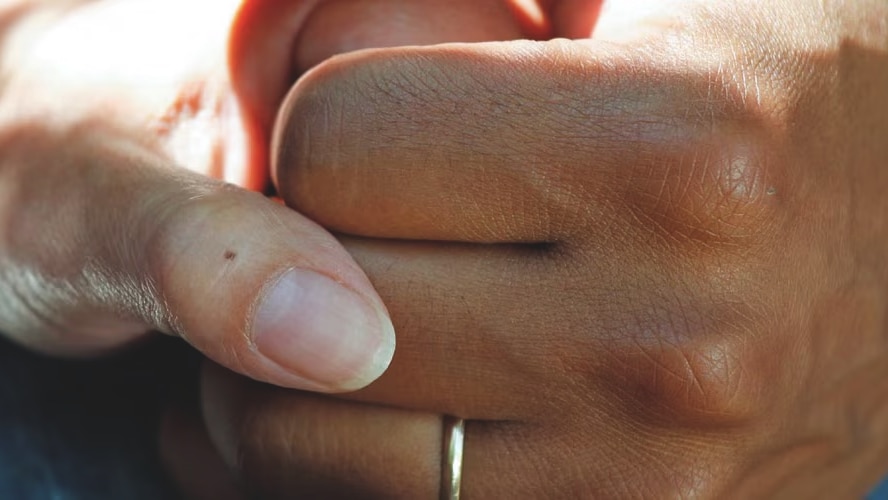Rundt 49 % av beboerne på sykehjem har en eller annen form for demens.* Alzheimers sykdom er den vanligste formen for demens og kan bidra til 60-70 % av tilfellene.**. Demens kan påvirke hukommelsen og andre kognitive funksjoner, og har innvirkning på bevegelighet og fingerferdighet. Alle disse symptomene kan bidra til inkontinens. Beboerne kan glemme hvor de er og hvorfor de er der. De er kanskje ikke i stand til å be om å få gå på toalettet, eller innser ikke engang at de må på toalettet før etter at de har hatt et uhell.
Alzheimers sykdom, demens og inkontinens
Hva er demens?
Demens er et samlebegrep for ulike symptomer som oppstår når hjernen rammes av sykdom.
Verdens helseorganisasjon definerer demens som en ervervet, permanent tilstand av svekket hukommelse og andre kognitive funksjoner som har vart i minst seks måneder, og som påvirker arbeid, sosial aktivitet og etter hvert også evnen til å leve et selvstendig liv.
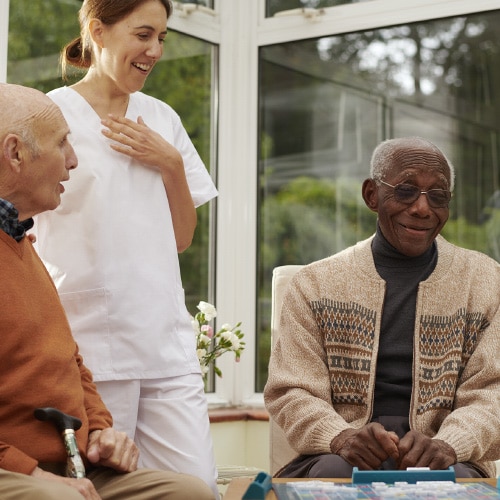

Hva er demens?
Demens er et samlebegrep for ulike symptomer som oppstår når hjernen rammes av sykdom.
Verdens helseorganisasjon definerer demens som en ervervet, permanent tilstand av svekket hukommelse og andre kognitive funksjoner som har vart i minst seks måneder, og som påvirker arbeid, sosial aktivitet og etter hvert også evnen til å leve et selvstendig liv.
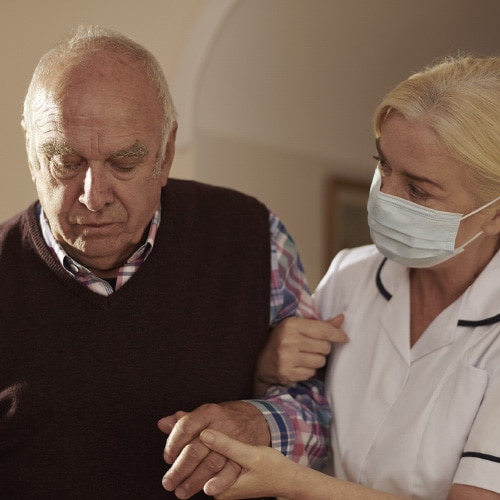
Demens forårsaket av Alzheimers sykdom
Mer enn halvparten av alle personer med demens har Alzheimers sykdom, som rammer hjernen og forårsaker hukommelsestap og forvirring, og som bremser eller til og med stopper hjernefunksjoner som tenkning, forståelse og tolkning.
Andre typer demens og årsaker til demens
Disse omfatter vaskulær demens, demens med Lewy-legemer (DLB), demens ved Parkinsons sykdom og frontotemporal demens. Alderdom, diabetes, hjertesykdom og gener kan alle være medvirkende risikofaktorer. Kvinner har også større sannsynlighet for å få demens enn menn.


Andre typer demens og årsaker til demens
Disse omfatter vaskulær demens, demens med Lewy-legemer (DLB), demens ved Parkinsons sykdom og frontotemporal demens. Alderdom, diabetes, hjertesykdom og gener kan alle være medvirkende risikofaktorer. Kvinner har også større sannsynlighet for å få demens enn menn.
De tre stadiene av demens
Demenssymptomene varierer mellom de ulike typene, hvilken del av hjernen som er rammet, og fra person til person. Det kan dreie seg om problemer med kognitive funksjoner, orienteringsevne, forståelse, kalkulasjon, læringsevne, språk og dømmekraft. Demens utvikler seg over tid og kategoriseres i følgende tre stadier.
*Required fields
Tidlig stadie
Humør, små atferdsendringer og glemsomhet. Ofte er ikke symptomene tydlige, så de blir forvekslet med “alderdom”.
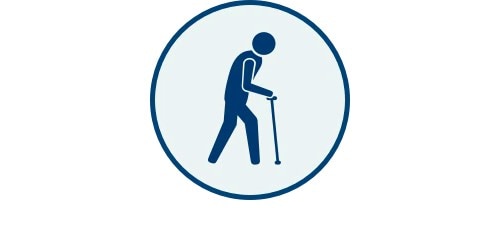
*Required fields
Mellomstadiet
Veldig glemsk, svekkede kommunikasjonsferdigheter, vanskeligheter med daglige oppgaver.
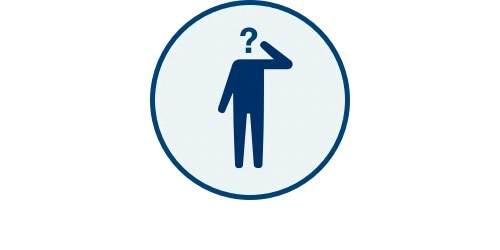
*Required fields
Sent stadie
Avhengig av andre for omsorg, uvitende om tid og sted, og ute av stand til å gjenkjenne slektninger og kjente gjenstander.

Atferdsmessige og psykologiske symptomer ved demens (BPSD)
Personer med demens får stadig vanskeligere for å kommunisere sine behov og forstå verden, noe som kan resultere i motstand mot pleie og omsorg. Faktisk vil 90 % av personer med demens oppleve BPSD, som kan omfatte angst, apati, rastløshet, paranoia, hallusinasjoner og reaksjonsatferd.
Det er mange ting som kan utløse BPSD, for eksempel smerter, forstoppelse, kløe, søvnmangel, mangel på privatliv og stressende omgivelser.
Siden BPSD i stor grad påvirker livskvaliteten, er det viktig å identifisere og minimere disse utløsende faktorene gjennom personsentrert omsorg.
Hva er personsentrert omsorg?
Personsentrert omsorg betyr å behandle beboeren som en likeverdig partner, hjelpe dem til å hjelpe seg selv til å forbedre sin egen uavhengighet, livskvalitet og velvære, og gi dem kunnskap, hjelpemidler og selvtillit til å gjøre dette.
I omsorgen for personer med demens er det viktig å behandle dem med verdighet, medfølelse og respekt, å støtte dem i å utvikle sine sterke sider og evner, slik at de kan leve et selvstendig liv og bevare sin identitet så lenge som mulig.
Bli kjent med beboeren, snakk med de pårørende og involver den enkelte i sin egen omsorg. Deltakelse i aktiviteter kan bidra til å forebygge frustrasjon og utfordrende atferd hos beboerne. Håndter eventuelle symptomer ved hjelp av musikk, massasje, en aktiv livsstil og å tilbringe tid utendørs. Det hjelper også å si og gjøre én ting om gangen, være tålmodig og vente på svar.
Hvordan kan personsentrert omsorg forbedre symptomene på demens?
Å oppmuntre beboerne til å ha en sunn og aktiv livsstil, opprettholde sosiale interaksjoner og en god, konsekvent søvnrutine kan alle forbedre symptomene på demens.
Personsentrert omsorg forbedrer symptomene på demens
Personsentrert inkontinensomsorg støtter beboernes uavhengighet så langt det er mulig. Her er noen måter å oppnå dette på, samtidig som beboernes verdighet, komfort og sikkerhet ivaretas.
- Kartlegg beboerens behov, og fastsett personlige tider for toalettbesøk (TENA Identifi (digital kartlegging) eller en TENA Solution (manuell kartlegging) er er nyttige verktøy).
- Observer tegn på behov for å gå på toalettet, og hjelp til ved behov.
- Oppretthold uavhengigheten ved å sørge for at klær og inkontinensprodukter er enkle å ta på og av, som TENA Pants buksebleier.
- Sørg for at beboeren vet veien til toalettet - merk toalettet, lysbryteren og toalettsetet tydelig.
- La toalettdøren stå åpen og lyset være på om natten, slik at det er lett å finne frem. Du kan også sette en toalettstol ved siden av sengen om natten.
- Ha lett tilgjengelige produkter for personlig hygiene, slik at beboeren kan opprettholde hygiene og hudhelse.
- Bruk mobilitetshjelpemidler som et hevet toalettsete og håndtak.
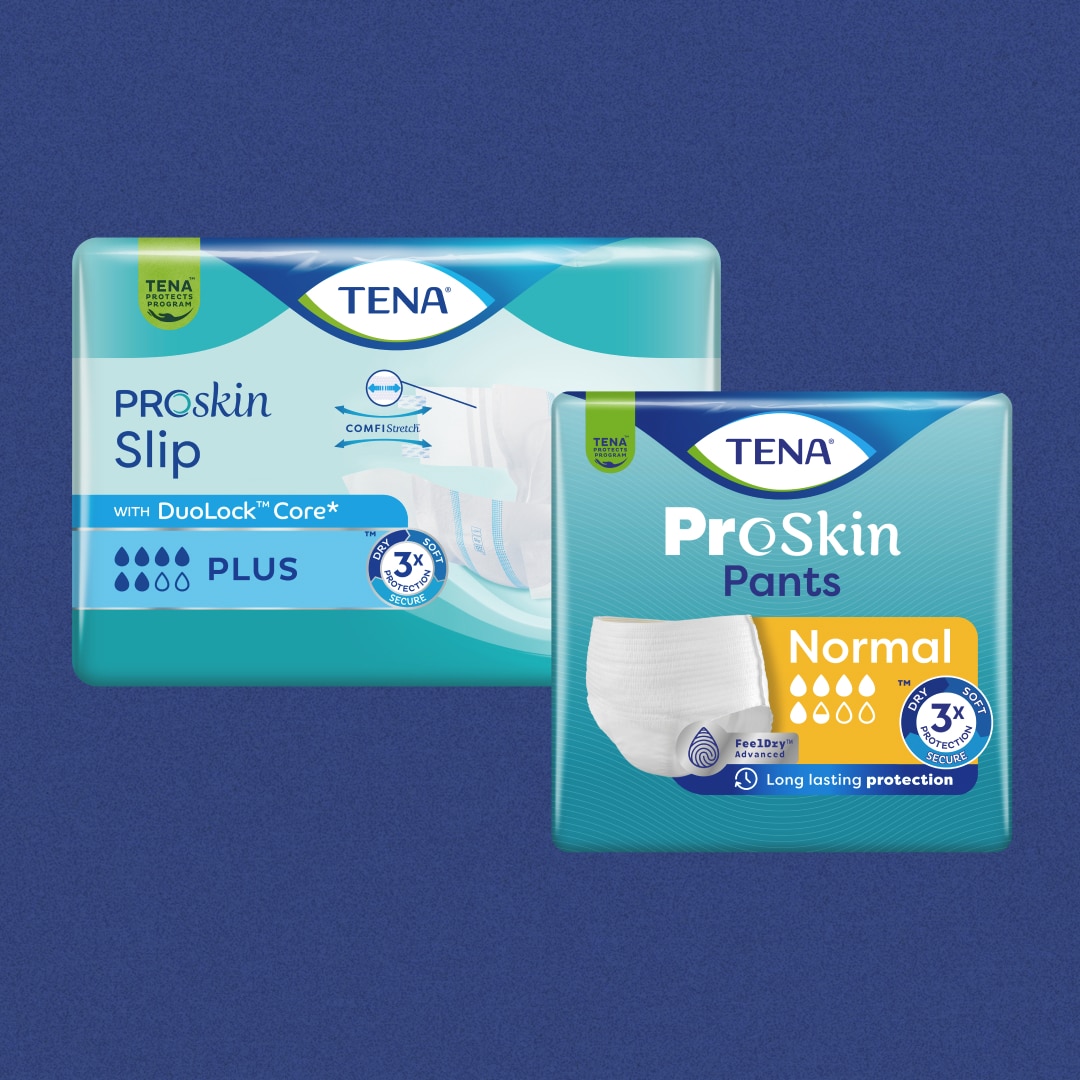
Produkter for kontinenspleie
TENA tilbyr et stort utvalg av inkontinensprodukter. Fra TENA Pants som tas opp og ned som vanlig undertøy ved toalettbesøk, til produkter med våthetsindikatorer som bidrar til å sikre at personen bare blir skiftet når det er nødvendig. Noen personer med demens kan være redde for vann, så skyllefrie produkter som TENA Vaskehansker og Sjampohetter kan bidra til å opprettholde sunn hud, mens TENAs hudkrem kan lindre og forebygge tørr hud.
Revidert av Josefine Grandin, distriktssykepleier, uroterapeut, 2023-06-08


